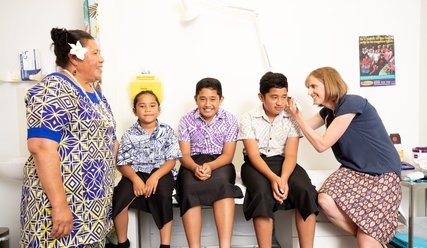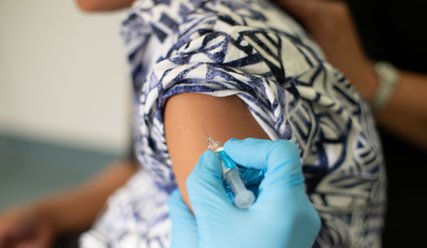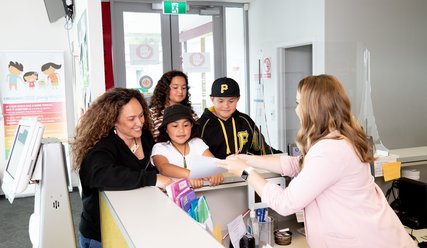Another layer of burnout for Māori and Pasifika GPs
Dr Api Talemaitoga is a self-confessed workaholic. “A lot of what nurtures and sustains me comes from our work,” he said during the Wellbeing and Burnout Panel at GP22: the Conference for General Practice.
Speaking alongside Dr Jo Scott-Jones, Dr Justine Lancaster and Te Aka Whai Ora CEO Riana Manuel, Api spoke about his personal experience of burnout particularly because of being the public Pasifika face to the COVID-19 response in the Pacific community.
“Many of us have a great capacity to work, sometimes 60 or 70 hours a week. But when it’s week after week it gets tiring.”
The key, Dr Talemaitoga says, is developing a system for monitoring the signs that you are dipping into burnout territory. “Personally, I lose the physical energy to do things – to go and meet friends, to go for a walk. I resort to sarcasm. I lose my quality of sleep. These are all signs that I’ve overcommitted myself and that I need a break.”
Pasifika and Māori GPs often face an extra layer of burnout due to being immersed within their communities. “You’ve got to be able to control how much you give of yourself to the community. If you’re overly available, they will take all that you can give.”
“You might see your patients at your practice, then you see them at church on Sunday and suddenly you’re getting tapped on the shoulder halfway through the service and told about someone’s illness. It’s definitely an extra requirement.”
“For Māori and Pasifika, it’s the awareness that this is a trusted voice, this is someone who looks and sounds like me, doesn’t talk down to me and has looked after members of my family – so there’s trust there. The needs are there because you’re in the community.”
So how do we, and particularly those still new to the sector, manage the stresses of the job in the current environment? Api suggests that we need to be to monitor our wellbeing carefully; “personally, I’m a workaholic, so I have to be really aware of my engagement levels and confident in my own ability to get the job done without risking burnout. Some of our younger GPs are a bit unsure, they ask me whether their parents’ generation will listen to them. I say, you must have confidence – your knowledge, your education and your experience are what you have to share but do it at a community level. Use our principles, focus on the family. Believe in your own ability and you will avoid the additional stress of self-doubt.”
“I really appreciated what Justine said during the panel – take stock. Take five minutes out of your day to check in with yourself and be aware. If you’re dipping into burnout territory you must reach out for support. Talk through what’s bugging you – or not but have some quality time out. What is the thing that nurtures you? Look for it. For me, it’s family, and not seeing my siblings and family in Fiji for three years was difficult. I was in deficit. But we have made up for lost time now and I feel better for it.”


